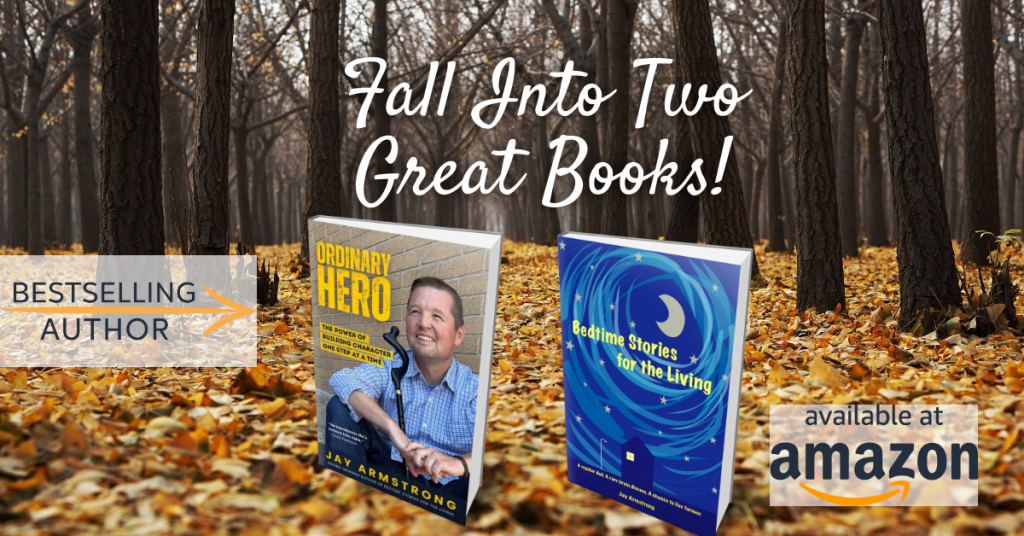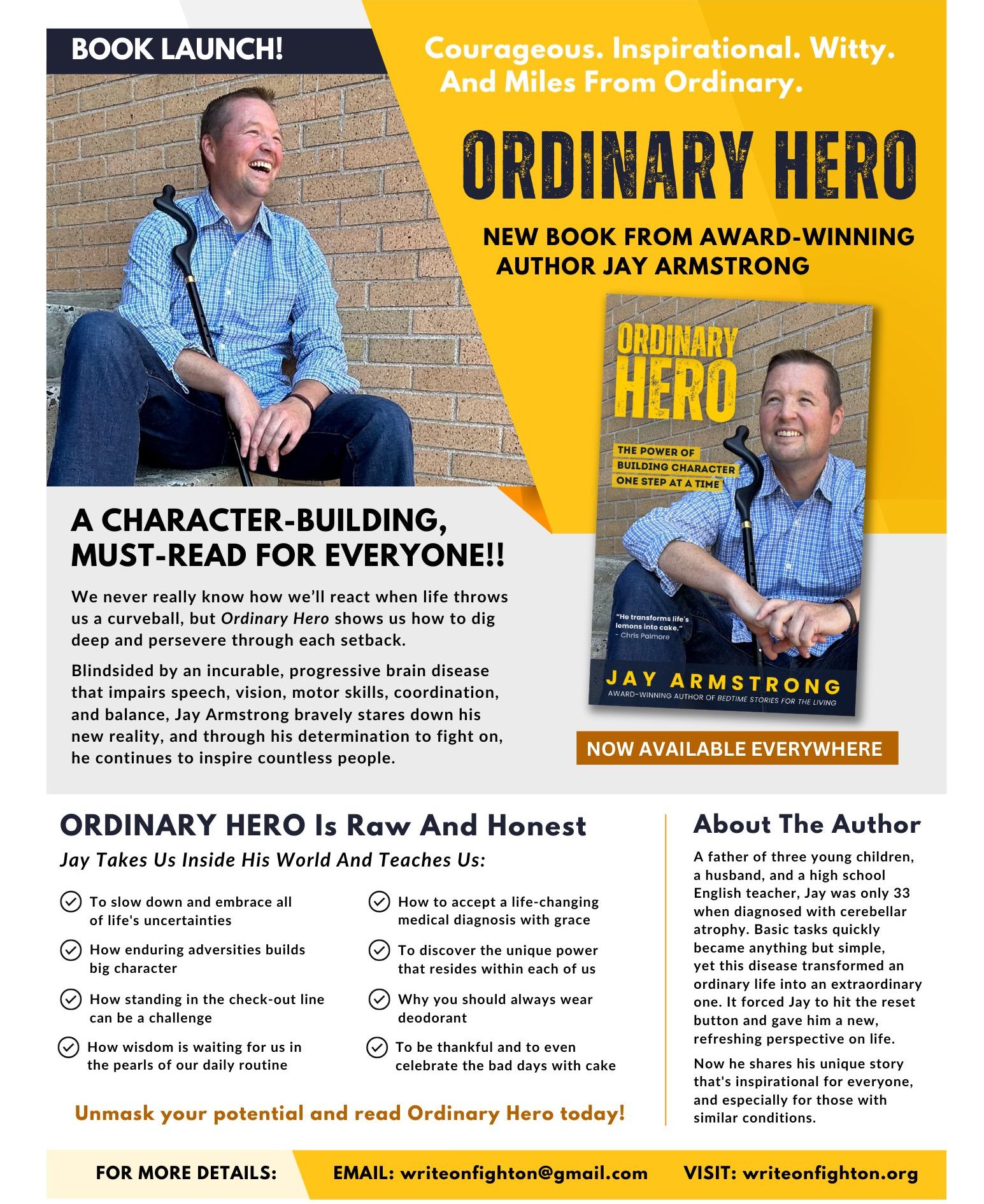In the Spirit of Thanksgiving: Lessons on Living with a Disability

I’ve come to believe that true courage isn’t about bravely facing a challenge with a clenched jaw and a steady hand. It’s about allowing yourself to be seen, to stand in the full light of your vulnerability without hiding. For me, that’s the journey of living with Ataxia—a disorder that steadily steals my ability to move with grace.
The real struggle, I’ve learned, isn’t in my muscles or balance—it’s in the raw, aching act of exposing myself to others while navigating a world that demands constant adaptation.
Ataxia is one of those conditions you can’t easily explain. It disrupts everything—walking, talking, even eating. The clinical term sounds so neat, so contained, but Ataxia is anything but. It’s a slow unraveling, a process that feels like losing myself in real time. My body becomes a stranger to me, one that doesn’t listen when I ask it to pick up a glass of water or turn a door handle. It’s as though the signals I send are lost in translation, like a radio station that only plays static.
And yet, despite this unrelenting shift, I’ve come to understand that the courage I need isn’t to deny it. It’s to show up every day, in all my imperfection and vulnerability, and still ask for help when I need it.
In the beginning, I tried to hide it—the way my feet would drag, or how I’d steady myself with each uncertain step, as if the ground beneath me might slip away. I didn’t want to seem weak, to be a burden. But it didn’t take long before I realized the hardest part wasn’t walking with Ataxia. It was walking with the fear of being seen.
Vulnerability—the exposure—was the hardest thing.
There’s a paradox in living with a disability like Ataxia: society tells you to overcome your limitations, to fight for independence, to cling to dignity. But the truth is, courage lies in accepting those limitations as part of who you are and being open about them. The real bravery comes in asking for help when you need it and letting go of the illusion that you can do it all alone.
When I began to share my struggles, I realized the world didn’t collapse around me. People didn’t pity me as I had feared. They didn’t turn away. Instead, they met me with kindness, patience, and understanding. I learned something deeply human—that we all carry burdens, though they might look different. We all have moments of doubt, of fear, and there’s no shame in sharing those with each other.
Lately, I’ve been working on a new book, A Good Calamity, and it’s the most vulnerable project I’ve ever undertaken. While writing it, I found myself grappling with a question that seemed almost foolish: Can a disabled person still be a creative person? The answer, I’ve realized, is a resounding yes.
A Good Calamity contains poetry—something I’ve always avoided. As a writer of prose, I’ve been comfortable with space—the freedom to stretch out and explore my thoughts. Poetry, however, demands precision. It distills emotion into something sharp and controlled. It’s the exact opposite of the expansive freedom I’m used to, and often, the words slip through my fingers, elusive and slippery—much like the unpredictable movements of my own body.
And yet, writing these poems has revealed another layer of courage. Poetry is raw and unflinching. To write it is to expose my truest self, to lay bare my emotions in ways that are impossible to hide behind. It’s the same as admitting when I need help physically—it’s about saying, “This is me, as I am. Take it or leave it.” And though it’s frightening, there’s power in embracing that fear.
I’ve come to realize that true courage is not in pretending to be fearless, but in facing life despite the fear, in opening ourselves to others and showing them our vulnerability. In this, we discover that we are more human, more real, and more connected. The true power of vulnerability lies in the shared understanding that we are not alone in our struggles—we are bound together by our humanity.
In the spirit of Thanksgiving, I find myself deeply grateful for the connections that have supported me through this journey. There’s a kind of magic in sitting at a table surrounded by friends and family who see you—not just as you are, but as you are becoming. This year, my vulnerability feels less like something to hide and more like something to celebrate. As I share stories, laughter, and even the quiet moments, I am reminded that the beauty of life is not in perfection, but in the messy, tender, real ways we come together. Being seen and accepted, flaws and all, gives me the courage to be more myself, and in that, I realize I am never truly alone.
This Thanksgiving, I’m thankful for the love and understanding of those who walk beside me—who show up with open hearts, who read and support my writing,and who make the vulnerability of living with Ataxia something that binds us all together.
Be well,
Jay
Are you writer? Are you looking for writing advice or writing tactics that you can help guide you on your writing journey?

One, Line, One Love: Episode 45: A Creative Conversation Between Two Everyday Writers
In this episode of One Line, One Love, Gail and Jay dive into Gail’s “element of style.” She explains how her writing leans more toward being provocative than prescriptive, allowing her to craft reflective pieces that explore possibilities rather than absolutes. Together, they reflect on their own writing journeys and discuss how this approach of reflective writing can engage and inspire readers. If you’re a writer searching for your own “element of style,” this episode is a must-listen!

Book Sale Link
Warm greetings to everyone who found me on the University of Pennsylvania’s Ataxia Clinic’s website! Thanks for stopping by. I have ataxia and though I’m not a doctor, I hope my words comfort, encourage, empower, and serve as good company on your journey.

Jay Armstrong is a speaker and an award-winning author. Despite being diagnosed with a rare neurological disease, that impairs his movement, balance, eyesight, and speech–Jay presses on. The leader of the Philadelphia Ataxia Support Group, he hopes to help you find joy, peace, and meaning in life.



